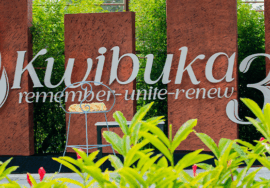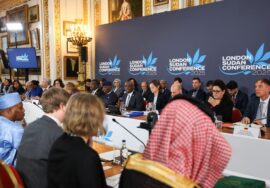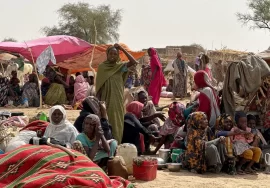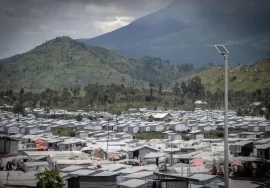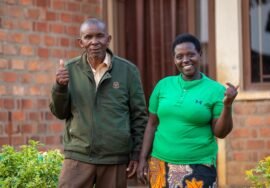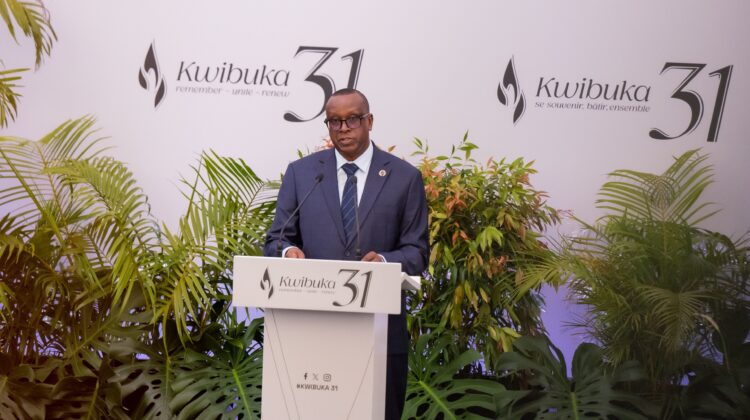
Rwanda: Young People Urged to Combat Genocide Denial
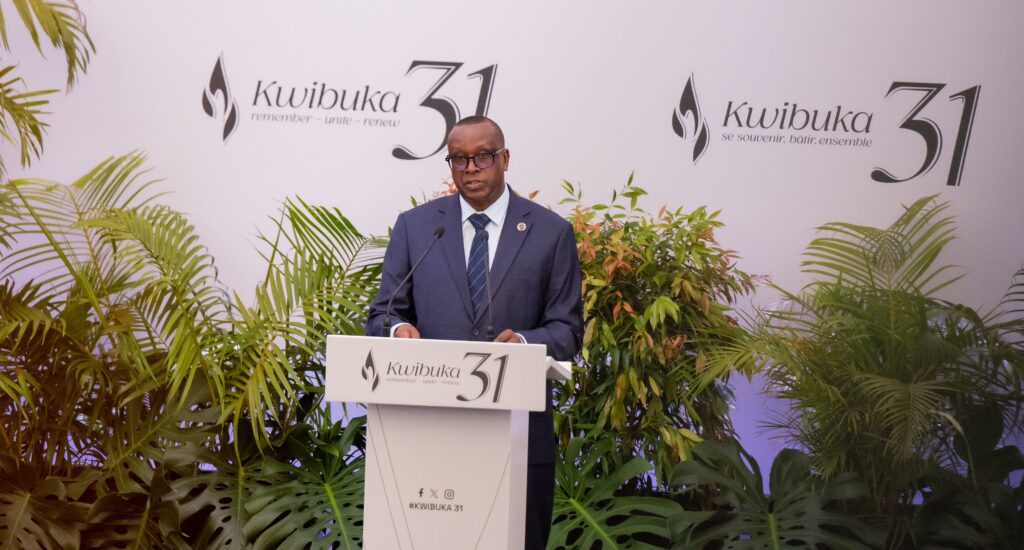
Jean Damascène Bizimana, Rwanda’s Minister of National Unity and Civic Engagement (MINUBUMWE) speaking at Kwibuka event.
As Rwanda marks the 100-day commemoration of the 1994 Genocide against the Tutsi, young people are being called upon to take an active stand against genocide denial.
The commemoration period, which begins on April 7, often sees a surge in denial rhetoric and misinformation, particularly on social media and other digital platforms. Officials warn this trend threatens to undermine the reconciliation and resilience achieved over the past three decades.
Jean Damascène Bizimana, Rwanda’s Minister of National Unity and Civic Engagement (MINUBUMWE), has urged the country’s youth to study Rwanda’s history and rely on documented evidence to counter misinformation and revisionist narratives spreading online.
“The only effective way to fight genocide denial is through facts especially those verified by the International Criminal Tribunal for Rwanda (ICTR),” Bizimana said.
He pointed to historic rulings, including the case of Jean Kambanda, Rwanda’s former prime minister, who pleaded guilty and admitted that the genocide was state organiSed. Other landmark judgments include that of Jean-Paul Akayesu, the former Bourgmestre of Taba in Southern Province, and convictions against media leaders who incited violence. Bizimana noted these facts can dismantle false claims, including the widely debunked double-genocide theory, which alleges that the Rwanda Patriotic Front (RPF), after halting the genocide, committed one against the Hutu population.
“Denying the Genocide against the Tutsi is a criminal offense under international law, as reaffirmed by the ICTR,” Bizimana reminded, citing the United Nations Security Council Resolution 2150 of 2014, which urges member states to prosecute genocide perpetrators and combat the spread of genocide ideology, including from groups like the FDLR.”
He also challenged young people to respond to denial narratives with evidence, not emotion. “What genocide deniers do is twist the facts. Some claim that Hutus were also killed. But the youth must respond with proof, grounded in history,” Bizimana said.
At the same time, he encouraged young Rwandans to spotlight the country’s post-genocide achievements. “From universal education and school feeding programs to infrastructure development, these are tangible signs of national progress, unity, and peace. They must be part of the narrative we present to show how today’s leadership rejects the discriminatory practices of the past,” he added.
Yolande Mukagasana, a renowned Rwandan author and survivor of the 1994 Genocide against the Tutsi, also called on young people to be discerning about the content and voices they engage with online.
“Some platforms spread false narratives and revisionist history, targeting young audiences,” Mukagasana warned. “Rwandan youth have a crucial role to play in countering this by actively promoting facts and truth.”
She urged young people to embrace the responsibility of preserving and sharing the country’s history, learning from older generations, and using social media to foster unity, healing, and resilience.
“All we need to do is engage the youth, tell our stories, and trust them to carry those stories forward. By spreading love, sharing testimonies and facts, and honoring our history, we can collectively fight genocide denial,” Mukagasana said.
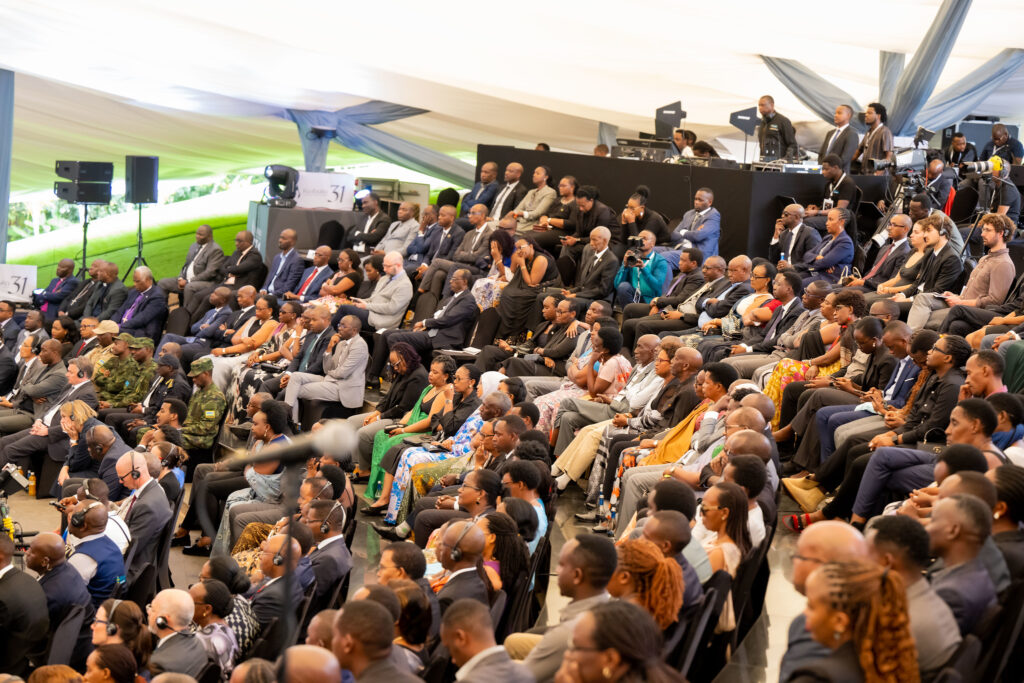
Observers note that many genocide deniers either participated in the atrocities or seek to obscure the truth to escape justice. Others, particularly younger audiences abroad, fall prey to denial due to misinformation and lack of credible information.
With over 60 percent of Rwanda’s population under the age of 30, the country’s future social fabric depends heavily on its youth. Encouragingly, several youth-led organizations have already stepped up.
One of them, Peace and Love Proclaimers (PLP), actively promotes national unity and reconciliation. Its Executive Director, Srael Nuru Mupenzi, a long-time youth leader and peacebuilder, emphasises the need for young people to claim the digital space as defenders of memory.
“The right approach isn’t just to fight denial with facts but to tell history in ways that connect, inspire, and endure,” Mupenzi said. “We must become digital guardians of memory — not reacting with anger, but responding with creativity, storytelling, and innovation.”
Authors, actors, artists, and other actors from the creative industry must work with and support young people to amplify Rwanda’s history across diverse media platforms, ensuring that the message reaches audiences worldwide.

